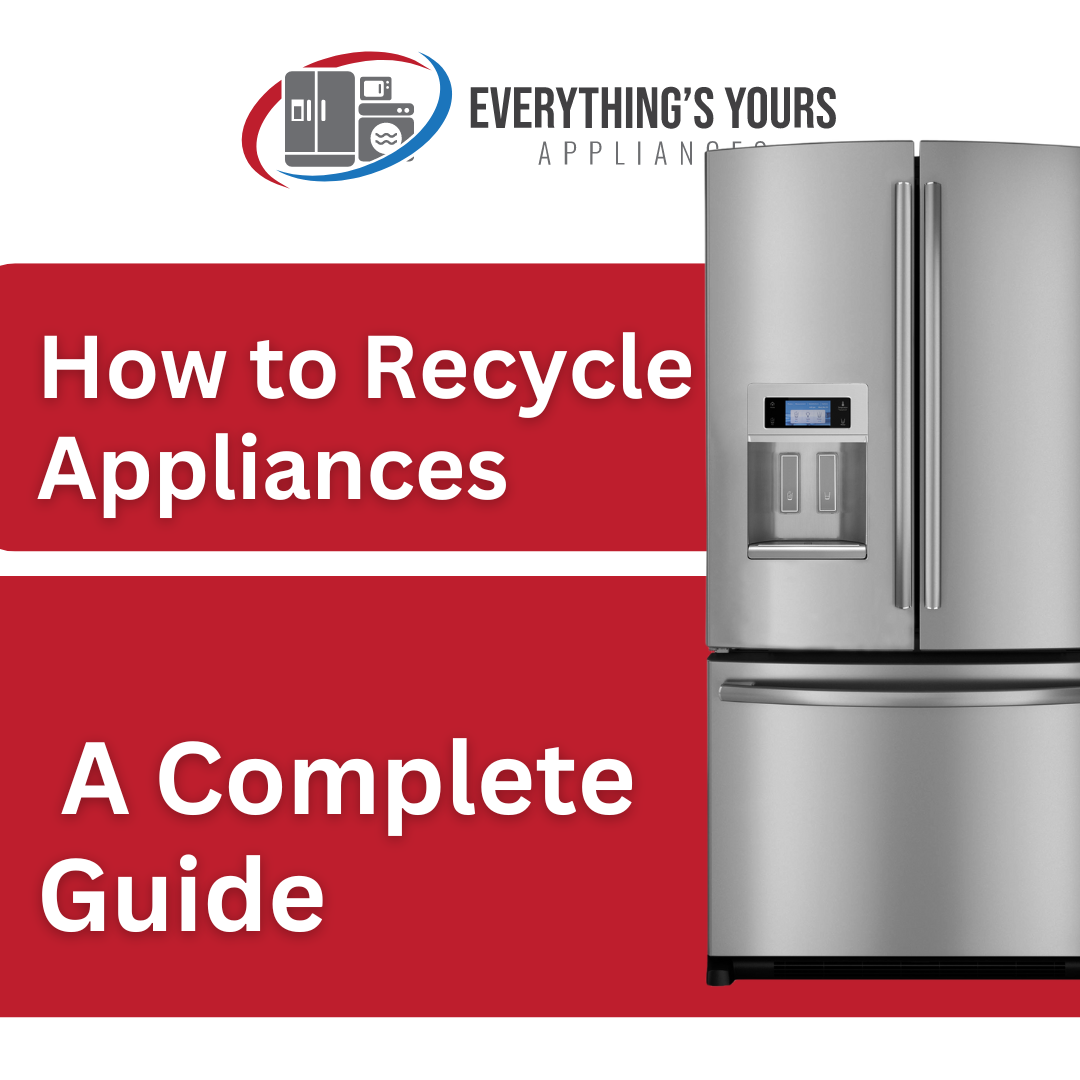
How to Recycle Appliances: A Complete Guide
Upgrading your appliances can be exciting, but when it comes to getting rid of your old ones, you might wonder how to do it responsibly. Tossing them into a landfill isn’t the best option for the environment. Many appliances contain materials that can be harmful when left to degrade, but they also hold valuable metals and components that can be recycled and reused. Recycling appliances is a smart way to reduce waste, conserve resources, and do your part to protect the planet. In this guide, we’ll cover why appliance recycling is essential and how to do it properly.
Why Recycle Appliances?
Appliances contain materials like metals, plastics, and refrigerants that, when improperly disposed of, can pollute the environment. Recycling helps mitigate this impact by recovering these materials for reuse. Additionally, by recycling, you’re helping reduce the need for raw materials, which saves energy and conserves natural resources. Many cities have laws prohibiting the disposal of large appliances in landfills, making recycling the only responsible option.
How to Recycle Appliances
When it comes time to recycle your old appliances, follow these steps to ensure the process is smooth and eco-friendly.
Step 1: Can the Appliance Be Reused?
Before recycling, consider whether the appliance can still be used. If it’s in working condition, donating or selling it could be a better option. Charities often accept functional appliances, and online platforms like Craigslist or Facebook Marketplace are great for finding new homes for used items. If it’s broken but repairable, some organizations refurbish appliances for resale or donation.
Step 2: Find a Recycling Program
If your appliance is beyond repair, it’s time to recycle it. Many cities offer recycling programs for large appliances, and in some cases, they’ll even pick them up for free. Contact your local recycling center or waste management service to see if they accept appliances.
Another option is to check with retailers. Many stores that sell appliances also offer recycling services when delivering a new one. For example, stores like Best Buy and Home Depot will often haul away your old appliance for recycling when they bring your new one. Some utility companies also have recycling programs for old refrigerators or freezers, often offering rebates for upgrading to energy-efficient models.
Special Considerations for Different Appliances
Certain appliances require special handling because they contain hazardous materials. Refrigerators and air conditioners, for instance, contain refrigerants like Freon, which must be safely removed before recycling. Most recycling centers have the equipment and certifications needed to handle this process.
Washers, dryers, and dishwashers, on the other hand, are primarily composed of metal and can easily be taken apart and recycled. Even smaller appliances like microwaves can usually be recycled through e-waste programs, though they may require dropping off at specific locations.
Preparing Your Appliance for Recycling
Once you’ve found a recycling option, you’ll need to prepare the appliance for disposal. Start by cleaning out any leftover items or debris. If it’s a refrigerator, remove all food and give it a quick clean. Next, unplug the appliance well in advance so that any residual electricity is discharged. For gas-powered appliances, like certain stoves, hire a professional to safely disconnect the gas line. Finally, make sure any loose parts, like shelves or knobs, are secured or removed to make transportation easier.
What Happens After You Recycle?
Once your appliance reaches a recycling center, it goes through a process of dismantling and material recovery. Hazardous substances like refrigerants are carefully removed and disposed of according to environmental guidelines. The remaining materials—such as metals, plastics, and glass—are separated and sent to appropriate recycling facilities where they’re repurposed into new products. By recycling your old appliances, you’re not only preventing harmful materials from entering the environment but also ensuring that valuable resources are reused.
Other Disposal Options
If recycling programs aren’t available in your area, you may have other options for responsibly disposing of appliances. Some scrap metal yards will accept old appliances and either pay you for the metal or recycle it on your behalf. Junk removal services, such as 1-800-GOT-JUNK, also offer appliance removal with a focus on recycling, though there may be a fee for these services.
Final Thoughts
Recycling your old appliances is an easy way to reduce waste and make a positive impact on the environment. Whether you choose to donate, sell, or recycle your old appliances, you’re helping reduce pollution, conserve energy, and save valuable resources. Before tossing your appliance to the curb, consider the recycling options available to you, and do your part in keeping the planet green.
Conclusion: A Greener Future Together
At Everything’s Yours Appliances, sustainability is at the heart of everything we do. From recycling appliance boxes to repurposing them for reuse and supporting local schools, we’re dedicated to making a positive impact on the environment and our community. With your support, we can continue to build a greener future for generations to come. Thank you for joining us on this journey towards sustainability.
brands, Dryer, Everything's Yours Appliances, Refrigerator, Samsung, Stainless Steel, trending, Washer